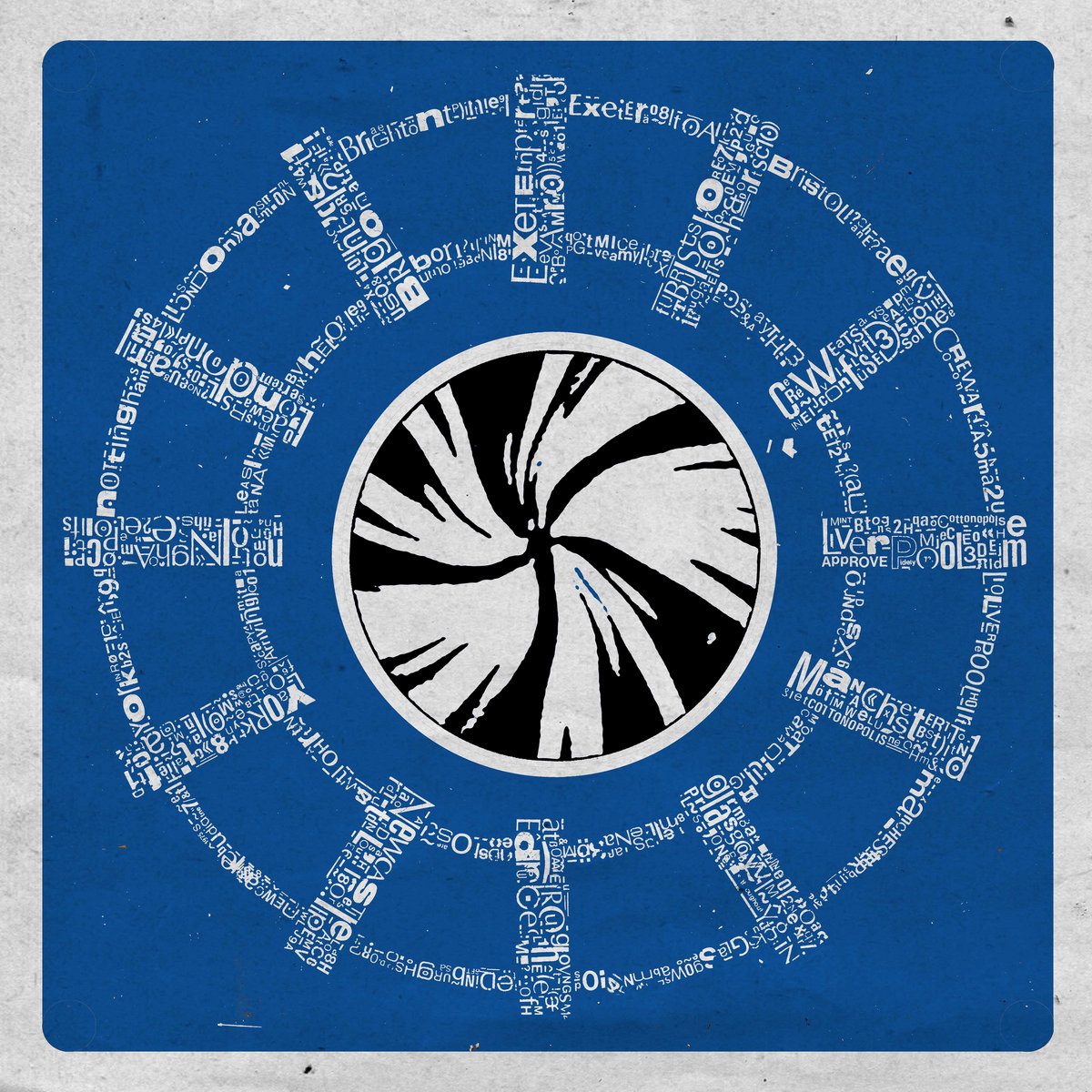 Over the course of ten days twelve railway stations were visited and at each a thirty second sound recording and photograph were taken. During the train journeys, compositions were sketched onto scores and later recorded at one rehearsal evening with The City of Exeter Railway Brass Band. The twelve short tracks reflect those brief encounters, hint at the unrealized possibilities and fleeting nature of human life, and seek majesty in insignificant events. Less than eight minutes long and organized into two sections, a reissue of Twelve Stations is overdue.
Over the course of ten days twelve railway stations were visited and at each a thirty second sound recording and photograph were taken. During the train journeys, compositions were sketched onto scores and later recorded at one rehearsal evening with The City of Exeter Railway Brass Band. The twelve short tracks reflect those brief encounters, hint at the unrealized possibilities and fleeting nature of human life, and seek majesty in insignificant events. Less than eight minutes long and organized into two sections, a reissue of Twelve Stations is overdue.
Listening to this recording is like walking along a dark street in winter and hearing a band playing in a hall half a mile away, or removing one brick from a wall in a rain-swept cemetery and straining to hear faint echoes of sound trapped for half a century. But my enjoyment of the brass band sounds, the chuff chuff, platform announcements, tracks clattering, unknown sounds fading, and the clever short duration of this piece, is one thing; context is quite another. I hesitate to compare Twelve Stations with Chris Watson’s El Tren Fantasma, but it can belong in a context also containing Flanders and Swann’s "The Slow Train" — that of a lament. David Chatton Baker's effort is a more abstract encapsulation of time passing, whereas Flanders and Swann are specifically lamenting the closure of many small railway stations in the UK as a result of a government report (March 1963):
"No one departs and no one arrives
From Selby to Goole, from St Erth to St Ives
They've all passed out of our lives."
Those closures arose from what I refuse to call the Beeching Report since Ernest Marples better personifies the Conservative government, with clear conflicts of interest to road construction projects. who had it drawn up. "The Slow Train" was written in July 1963 and it depicts perfectly the sense of loss which was widely felt. On August 8th, 1963, an equally infamous Great Train Robbery occurred of an overnight from Glasgow to London with 72 people on board sorting the mail by hand. The robbers, who grabbed the equivalent of $75 million, had downed phone lines in the area and escaped in getaway cars. One brave rail-man got off the mail train and onto a passing goods train before raising the alarm at a nearby town. The gang, tuning in on VHF police radio heard "A robbery has been committed and you'll never believe it — they've stolen the train!"
Twelve Stations is also comparable with Edward Thomas's poem Aldestrop which gives his impressions of a brief unscheduled stop at the tiny station there on June 24th, 1914. But whereas Thomas leaves an indelible picture of peace and nature,Twelve Stations visits larger stations (including Crewe, the very epicenter of railway existence) and is a celebration of human activity and industry, fleeting but consequential. It also celebrates the late Owen Huxham (trombone player) and The City of Exeter Railway Brass Band that was formed just after World War Two. Aldestrop stands in vivid contrast to the coming carnage of World War One. In July 1915, aged 37 and married with three children, Edward Thomas enlisted to fight. Perhaps he felt his beloved land was somehow in danger. He was killed on April 9th, 1917, a Thursday, at the Battle of Arras. The enemy was arguably within, as British Railways closed Adlestrop to goods trains on August 26th, 1963 and to passengers on January 3rd, 1966. The signal box closed on April 27th, 1964 and the sidings made redundant. Incidentally, it just occurs that you might consider reading the rest of this review while listening to the brass band playing in the summery haze and bitter-sweet melancholy of Roy Harper's "When An Old Cricketer Leaves The Crease."
Everyone has a movie scene or perhaps a real life incident around trains. Mine is the end of Billy Liar where small town dreamer Tom Courtenay deliberately misses getting on the London train with Julie Christie by pretending to buy milk. In real life, Labour governments did not overturn the railway station cuts, perhaps due to ties to unions with strong links to roads. In any event, later Conservative Prime Minister Thatcher would treat the railways with about as much care Billy Liar treats the milk he tosses away in mock disgust. Thatcher preferred to import car-centric ideas from the US (where they make sense) and British roads are clogged beyond moderate solution. The cost of meeting renewed demand for train travel is astronomical and not all the previous tracks are even available. In another land, l ride the clean bybanen train which announces each separate stop with a distinctive tune, some days bringing my partner oat milk.
Read More

